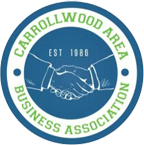Tampa Product Liability Attorney
Product defects can cause severe injury or death when they fail at a critical moment. Products can burst apart violently, sending shrapnel into consumers’ faces and eyes. Defective products can start fires or explosions, emit deadly toxic fumes, or cause a vehicle to roll over onto its roof, crushing the occupants. The ways in which defective products can fail and the types of harm they can cause are endless.
Unfortunately, consumers cannot know that a product has been defectively designed or manufactured and therefore avoid injury. The knowledge of a product’s safety lies solely with the manufacturer. For this reason, a body of law has developed known as strict products liability. Strict liability cases are different from negligence cases. Instead of proving a breach of duty or negligence, a product liability case revolves around proving that the product was defective when it left the manufacturer’s control and was not altered in any way before the user suffered an injury because of the defect.
Besides using a different legal theory – strict liability instead of negligence – product liability cases are also more difficult than other personal injury cases for another reason: product manufacturers are often massive corporations that use their vast resources to intimidate individual plaintiffs who bring cases against them. In addition, the evidence needed to prove that a product was defective sometimes lies within the company’s own records, but getting them to turn over the correct records can be daunting.
If you have a product liability claim, it is essential to get help from an experienced personal injury attorney who takes an aggressive stance toward defendants and is dedicated to achieving successful results on behalf of his clients. At Moore Law in Tampa, you’ll find an over 25-year veteran of personal injury law who is not afraid to take on the biggest cases, from individual claims in state court to federal class actions, with the skill and determination needed to stand up to the corporate giants and hold them accountable for the harm they have caused. Call Tampa product liability attorney Moore Law in Tampa at 813-510-5400 for a free analysis of your product liability claim.
What Makes a Product Defective?
Product defects generally fall into one of three classes: design defects, manufacturing defects, and failure to warn or marketing defects. These categories of product defects are discussed below.
Design Defects
A product can be broken from the start if it is not designed correctly. A design defect could cause a product not to work as it should, fail unexpectedly, or cause some unintended consequence when it is used. Dangerous design defects can cause an appliance to overheat and catch fire, create a risk of amputation from a power tool, or cause a vehicle to roll over or explode on impact. When a product is defectively designed, every consumer who uses the product could potentially suffer harm.
Manufacturing Defects
Sometimes a problem on the assembly line or a factory worker’s negligence can cause a product to be assembled incorrectly. Companies that use substandard or improper materials can also create manufacturing defects. A manufacturing defect could only affect one unit produced or thousands, depending on where the fault lies.
Failure to Warn or Marketing Defects
Products should be fit for their intended purpose or a reasonably foreseeable purpose. Sometimes, products are marketed for uses they were never created to serve. An example includes a prescription drug that was created to treat something like blood pressure, but it was later marketed for weight loss when the manufacturer noticed it had weight-reducing side effects. The drug was never designed or tested for that purpose and may be unsuitable or dangerous when used off-label. Failure to warn or advertising defects also occur when products don’t have clear instructions about how to use them safely or include warnings about dangers inherent in the product. Even safely designed and manufactured products can be dangerous if not used with adequate ventilation or eye protection, or they can be dangerous if swallowed or exposed to the skin. Such products need clear warnings with easy to understand instructions about what to do if exposed to danger.
Other factors that might show a product is dangerous or defective include:
- The product does not perform its intended function
- The product has the potential to cause danger or damage when it performs its function
- The product does not meet its own warranty standards
In addition to strict liability, product liability cases might involve negligence or breach of warranty claims as well. Also, other parties besides the manufacturer may be to blame, such as distributors, wholesalers or retailers. These claims are often complicated and complex, but with skill and determination, we work to hold responsible parties accountable for product defects, securing compensation for our clients, and helping make products safer for the general public.
Help With Product Defect Claims in Tampa
If you have been harmed by a dangerously defective product in Tampa, call Moore Law at 813-510-5400 for a free case analysis.








